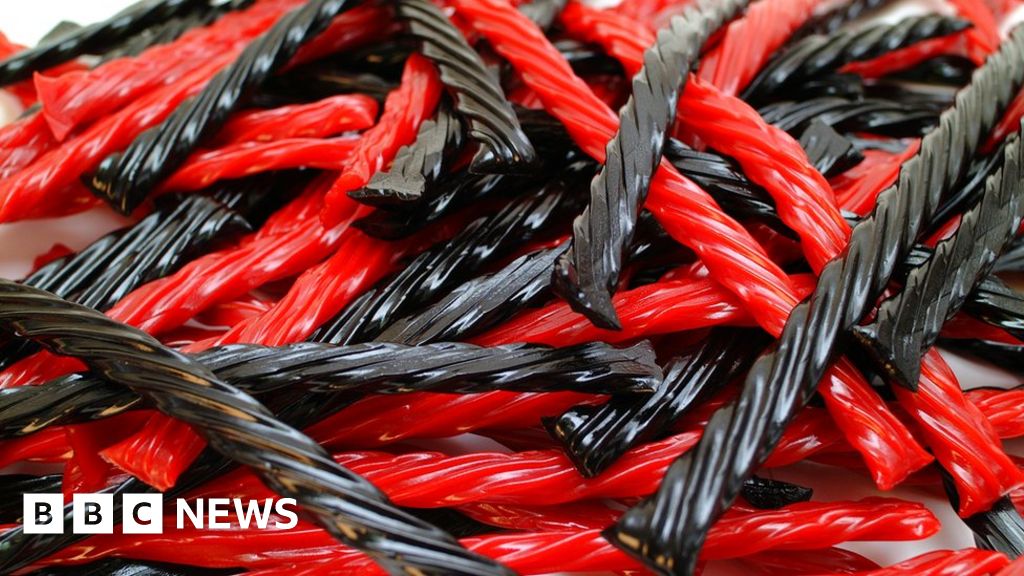In other news today...
-
-
@Dragoon Interesting article, but having just read the article @boomzilla posted in the Garage, I noticed two things about this article.
The second thing that I noticed is that the headline is misleading (
 ). Turing did not have a theory for Australian fairy circles and had possibly never even heard of them. He had a more general theory that explains how and why they form. That's not the same thing.
). Turing did not have a theory for Australian fairy circles and had possibly never even heard of them. He had a more general theory that explains how and why they form. That's not the same thing.The first thing I noticed is that this is an example of one of the things mentioned in the other article. The modern cult of Science, and especially the popular press (phys.org should know better), often conflate "finding evidence that supports" or "finding a phenomenon that can be explained by" a theory with "confirming" or "proving" the theory. Those are also not the same thing; it takes far more than a single study to prove a theory.
-
@HardwareGeek you can't prove a theory at all, at least by some philosophical viewpoints. All you can do is fail to disprove it, and thus strengthen your priors about its validity.
-
-
@Benjamin-Hall said in In other news today...:
@HardwareGeek you can't prove a theory at all, at least by some philosophical viewpoints. All you can do is fail to disprove it, and thus strengthen your priors about its validity.
There is still proof by contradiction. Show that "if X were not true, it would lead to a contradiction or impossibility, therefore X must be true." (This is the correct meaning of the term reductio ad absurdum, which is frequently abused these days to mean "show that there's something about X that is a target for mockery.")
-
@Mason_Wheeler said in In other news today...:
@Benjamin-Hall said in In other news today...:
@HardwareGeek you can't prove a theory at all, at least by some philosophical viewpoints. All you can do is fail to disprove it, and thus strengthen your priors about its validity.
There is still proof by contradiction. Show that "if X were not true, it would lead to a contradiction or impossibility, therefore X must be true." (This is the correct meaning of the term reductio ad absurdum, which is frequently abused these days to mean "show that there's something about X that is a target for mockery.")
That works for statements of pure logic, but gets really squirrelly for theories (which are not statements of pure logic, since they're also observational in nature). You can have multiple theories that all predict the same set of (currently-observable) facts, but differ in the ones we can't observe at this time. And the idea of "contradictions" and "impossibilities" is defined by the set of accepted theories--you always get contradictions when you include a new theory--the old theory predicted PDQ, the new one predicts ABC != PDQ. And lots of theories predict what was considered impossible under old theories.
Scientific theories include logical statements, but are not themselves logical statements. They're much more than that. Laws (which are not "proved" theories) are logical statements whose proof or disproof requires observation as well, but which can be ignored if they're internally inconsistent.
What you can say is "If X' were true, we'd have effects Y and Z, which differ from what we observe in ways we should be able to detect. Thus X' is likely not true."
Fun fact--the "truth" or "falsehood" of a theory is really besides the point. There are lots of theories that are absolutely false but useful enough that they get used all the time. For instance, the Self-Consistent Field/Hartree-Fock theory of atomic/molecular orbital construction. It's bad. It's really bad. But it's fast and it's pretty easy to set up the system so that it's not bad enough. Because when your competition scales like
N^7and you scale likeN^2.5, a lot of badness can be justified by just being able to calculate stuff at all.Theories are models glued together with explanations, and like models, all theories are false but some are useful. So talk about "proving" or "disproving" a theory is a sign of scientific ignorance. We accept or reject theories, based on a host of criteria including problem domain, accuracy of predictions vs desired accuracy (in this domain), computational tractability, the assumptions the theory requires, etc. No right-thinking scientist considers theories to really have a meaningful truth value. We don't really know that they're how the universe works at all, but they give good enough answers when we ask questions that we don't really care.
Edit: removed stuff that could have been interpreted as garage-related.
-
@Benjamin-Hall said in In other news today...:
Fun fact--the "truth" or "falsehood" of a theory is really besides the point. There are lots of theories that are absolutely false but useful enough that they get used all the time. For instance, the Self-Consistent Field/Hartree-Fock theory of atomic/molecular orbital construction. It's bad. It's really bad. But it's fast and it's pretty easy to set up the system so that it's not bad enough. Because when your competition scales like
N^7and you scale likeN^2.5, a lot of badness can be justified by just being able to calculate stuff at all.I prefer the way it works in mathematics: if you can prove it, it's a theorem. Otherwise it's a conjecture. Except for Fermat's; they were calling that a theorem long before Wiles came along and vindicated Pierre for claiming he had a proof but never publishing it.
In the less rigorous sciences we have cases on both ends of the "haven't proved this yet" scale and designated in various ways: Bode's Law which turned out not to be a law at all, and Continental Drift which was originally thought to be too silly an idea to take seriously but turned out to be right after all.
-
@da-Doctah said in In other news today...:
@Benjamin-Hall said in In other news today...:
Fun fact--the "truth" or "falsehood" of a theory is really besides the point. There are lots of theories that are absolutely false but useful enough that they get used all the time. For instance, the Self-Consistent Field/Hartree-Fock theory of atomic/molecular orbital construction. It's bad. It's really bad. But it's fast and it's pretty easy to set up the system so that it's not bad enough. Because when your competition scales like
N^7and you scale likeN^2.5, a lot of badness can be justified by just being able to calculate stuff at all.I prefer the way it works in mathematics: if you can prove it, it's a theorem. Otherwise it's a conjecture. Except for Fermat's; they were calling that a theorem long before Wiles came along and vindicated Pierre for claiming he had a proof but never publishing it.
In the less rigorous sciences we have cases on both ends of the "haven't proved this yet" scale and designated in various ways: Bode's Law which turned out not to be a law at all, and Continental Drift which was originally thought to be too silly an idea to take seriously but turned out to be right after all.
The idea of "proof" requires an idea of "truth". Which is somewhat lacking in the sciences. Instead we get notions of "accepted" or "rejected" (or "accepted for those cases").
Most accounts of the scientific method separate 3 things:
- Laws. Statements of observed fact. Often if-then statements or mathematical equations. These can be disproven by showing that a case they claim to handle doesn't match the stated outcome. Once they're disproven, they are usually amended if they're still considered useful.
- Theories. These are extended explanations of the laws. If X then Y because Z. They provide a framework for predictions. They can be invalidated by showing that there isn't a meaningful use-case for them or that the structure of the theory is inconsistent with itself (assumes X and !X at the same time, for example). But that's pretty rare. Most of the time, they get mutated as the observations change and are neither true nor false, provable or not, just useful for this case or not useful for this case. Some theories are empirical and come from observations and hypotheses. Others are first-principles and are built from (assumed) principles of nature.
- Hypotheses. These are testable predictions about specific cases. "If I do X, I should expect to see Y." Empirical theories are formed when a bunch of hypotheses all point toward a consistent explanation, and hypotheses depend on theories and laws.
Mathematics is an extension of logic. As such, internal validity is most important. For much of science, the criteria are much more about utility. Does it make good (enough) predictions? Does it help us ask new questions? Is it tractable (lots of great theories ended up rejected because they were too much of a pain in the rear to actually use, and lots of pretty poor ones get used all the time because the increased accuracy of the good ones isn't worth the extra pain to use them).
-
@Mason_Wheeler said in In other news today...:
@Benjamin-Hall said in In other news today...:
@HardwareGeek you can't prove a theory at all, at least by some philosophical viewpoints. All you can do is fail to disprove it, and thus strengthen your priors about its validity.
There is still proof by contradiction. Show that "if X were not true, it would lead to a contradiction or impossibility, therefore X must be true." (This is the correct meaning of the term reductio ad absurdum, which is frequently abused these days to mean "show that there's something about X that is a target for mockery.")
Keep in mind that theories are not actually true or false, because they are not properties of the real world, they are properties of our thinking about it. And we judge them by how much they allow us to predict how the world will behave. So they can be more or less useful or useless. But not true or false.
-
@Benjamin-Hall Axioms are also useful.
-
@Benjamin-Hall said in In other news today...:
But it's fast and it's pretty easy to set up the system so that it's not bad enough. Because when your competition scales like N^7 and you scale like N^2.5, a lot of badness can be justified by just being able to calculate stuff at all.
The Theory of Spherical Cows in a Vacuum is the best theory!
-
@Rhywden said in In other news today...:
@Benjamin-Hall Axioms are also useful.
Oh absolutely. And they're not provable either (that's rather in the definition of axiom). But, given axioms, you can test a theorem/conjecture completely. The ability to do that (and the meaning of doing that) is rather different for a theory.
-
-
@HardwareGeek said in In other news today...:
@Benjamin-Hall said in In other news today...:
But it's fast and it's pretty easy to set up the system so that it's not bad enough. Because when your competition scales like N^7 and you scale like N^2.5, a lot of badness can be justified by just being able to calculate stuff at all.
The Theory of Spherical Cows in a Vacuum is the best theory!
Hence why that's a well-known joke in the physics community. Or at least the punchline. I've heard speakers say "using a spherical cow approximation..." in talks. In my particular field, anything above 1 hydrogen atom (or 2 hydrogen atoms with one shared electron) all alone in the universe quickly approaches spherical-cow levels of approximation because the math gets painful even in the inexact theoretical treatments. Not to write down, but to actually solve for any interesting system. And the actual exact treatment (which is well-specified) is known to be insoluble analytically.
-
@Dragoon Will the new look get rid of the pop-ups begging for money. (Yeah, right.)
-
@Benjamin-Hall said in In other news today...:
And the actual exact treatment (which is well-specified) is known to be insoluble analytically.
Well, get better at Maths. D'Uh!
-
@HardwareGeek said in In other news today...:
@Dragoon Will the new look get rid of the pop-ups begging for money. (Yeah, right.)
They'll be 80% of the screen now.
-
@HardwareGeek
They won’t pop up any more, they’ll just be a permanent space that alternates between auto playing virus installers and a message “would you donate to us so we don’t have to install ransomware on your computer?”
-
@izzion said in In other news today...:
@HardwareGeek
They won’t pop up any more, they’ll just be a permanent space that alternates between auto playing virus installers and a message “would you donate to us so we don’t have to install ransomware on your computer?donate to us and we'll give you the decryption key”
-
@Benjamin-Hall said in In other news today...:
@HardwareGeek said in In other news today...:
The Theory of Spherical Cows in a Vacuum is the best theory!
Hence why that's a well-known joke in the physics community. Or at least the punchline. I've heard speakers say "using a spherical cow approximation..." in talks. In my particular field, anything above 1 hydrogen atom (or 2 hydrogen atoms with one shared electron) all alone in the universe quickly approaches spherical-cow levels of approximation because the math gets painful even in the inexact theoretical treatments. Not to write down, but to actually solve for any interesting system. And the actual exact treatment (which is well-specified) is known to be insoluble analytically.
The other simplification that's sort of canonical is "ignoring friction".
-
@DogsB said in In other news today...:
Even more mysterious
Very sparse on detail. There's no mention of a dog or young calves, but that doesn't mean they weren't there, and we aren't told how many cows* were seen attacking him, or indeed why he was in the field.
* Please, no jokes involving 'five'. [ed: reference to rule of six bollocks]
Update - AK Haart in the comments points out that he was walking his dogs. Thought so.
-
@Bulb said in In other news today...:
Keep in mind that theories are not actually true or false, because they are not properties of the real world, they are properties of our thinking about it.
There are some that are extremely strongly believed to be likely to be true, such as Conservation of Momentum and Conservation of Energy, because if they weren't true then the universe would be a whole lot stranger than it is observed to be. In those cases, it turns out that they turn out to be equivalent statements to saying that it doesn't matter where you stand when you do an experiment or what the time is when you do it. Noether's Theorem is an astonishing piece of work.
-
@PJH said in In other news today...:
@DogsB said in In other news today...:
Even more mysterious
Very sparse on detail. There's no mention of a dog or young calves, but that doesn't mean they weren't there, and we aren't told how many cows* were seen attacking him, or indeed why he was in the field.
* Please, no jokes involving 'five'. [ed: reference to rule of six bollocks]
Update - AK Haart in the comments points out that he was walking his dogs. Thought so.
Well, now I'm just glad all over!
-
I knew that stuff was bad for you!
-
@dkf said in In other news today...:
@Bulb said in In other news today...:
Keep in mind that theories are not actually true or false, because they are not properties of the real world, they are properties of our thinking about it.
There are some that are extremely strongly believed to be likely to be true, such as Conservation of Momentum and Conservation of Energy, because if they weren't true then the universe would be a whole lot stranger than it is observed to be. In those cases, it turns out that they turn out to be equivalent statements to saying that it doesn't matter where you stand when you do an experiment or what the time is when you do it. Noether's Theorem is an astonishing piece of work.
They are still just things in our heads. We simply can't know whether the universe out there is thinking in terms of momenta and energies or something completely different. We just know if we describe it using them, it tends to work out very well. That's as close to ‘true’ as we can get.
-
@dkf said in In other news today...:
There are some that are extremely strongly believed to be likely to be true, such as Conservation of Momentum and Conservation of Energy, because if they weren't true then the universe would be a whole lot stranger than it is observed to be.
Given the past 6 months, perhaps it's a good time to reevaluate this conclusion?

-
@dkf said in In other news today...:
I knew that stuff was bad for you!
I love black licorice but I know you have to be careful, it is both a stimulant and a laxative. It is good for your throat in tea.
-
@dkf said in In other news today...:
I knew that stuff was bad for you!
So's water, somewhere beyond 6 litres per day.
-
@PleegWat said in In other news today...:
@dkf said in In other news today...:
I knew that stuff was bad for you!
So's water, somewhere beyond 6 litres per day.
Water is even worse. After all, there is no "liquoriceboarding" interrogation technique (AFAIK).
-
@Mason_Wheeler said in In other news today...:
@dkf said in In other news today...:
There are some that are extremely strongly believed to be likely to be true, such as Conservation of Momentum and Conservation of Energy, because if they weren't true then the universe would be a whole lot stranger than it is observed to be.
Given the past 6 months, perhaps it's a good time to reevaluate this conclusion?

Violation of the conservation laws would be… odder than that. Much much odder.

-
@dkf said in In other news today...:
@Mason_Wheeler said in In other news today...:
@dkf said in In other news today...:
There are some that are extremely strongly believed to be likely to be true, such as Conservation of Momentum and Conservation of Energy, because if they weren't true then the universe would be a whole lot stranger than it is observed to be.
Given the past 6 months, perhaps it's a good time to reevaluate this conclusion?

Violation of the conservation laws would be… odder than that. Much much odder.

These days, they generally use carbon credits to get around that.

-
-
@Kamil-Podlesak said in In other news today...:
@PleegWat said in In other news today...:
@dkf said in In other news today...:
I knew that stuff was bad for you!
So's water, somewhere beyond 6 litres per day.
Water is even worse. After all, there is no "liquoriceboarding" interrogation technique (AFAIK).
Probably because the first person to suggest it was arrested for war crimes before he could finish his sentence
-
@hungrier said in In other news today...:
@Kamil-Podlesak said in In other news today...:
@PleegWat said in In other news today...:
@dkf said in In other news today...:
I knew that stuff was bad for you!
So's water, somewhere beyond 6 litres per day.
Water is even worse. After all, there is no "liquoriceboarding" interrogation technique (AFAIK).
Probably because the first person to suggest it was arrested for war crimes before he could finish his sentence
Wolfschanze, May of 1941.
Hitler: Ok, we have blitzkrieg, we have mass shootings, we have concentration camps. What else? Ideas, ideas, ideas! I want to hear fresh ideas!
Himmler: How about liquorice...
Hitler: Good God, Heinrich, get a hold of yourself! We are not animals!
-
@Karla said in In other news today...:
@dkf said in In other news today...:
I knew that stuff was bad for you!
I love black licorice but I know you have to be careful, it is both a stimulant and a laxative. It is good for your throat in tea.
But as bad for your blood pressure as any of the usual sodium sources, as I discovered one night. Had been driving around eating Good n' Plenty candy and had a muscle ache across my midsection, so I Googled it. Seems it can also steal so much potassium out of your body that it can cause permanent muscle damage.
(This is only for real licorice. Whatever they put in Twizzlers and Red Vines is only bad for the usual reasons that too much candy is bad.)
-
@da-Doctah said in In other news today...:
@Karla said in In other news today...:
@dkf said in In other news today...:
I knew that stuff was bad for you!
I love black licorice but I know you have to be careful, it is both a stimulant and a laxative. It is good for your throat in tea.
But as bad for your blood pressure as any of the usual sodium sources, as I discovered one night. Had been driving around eating Good n' Plenty candy and had a muscle ache across my midsection, so I Googled it. Seems it can also steal so much potassium out of your body that it can cause permanent muscle damage.
(This is only for real licorice. Whatever they put in Twizzlers and Red Vines is only bad for the usual reasons that too much candy is bad.)
Yeah, I have blood pressure issues, that's why I'm aware of its effects.
-
@da-Doctah Black licorice, along with any form of that flavor (anise seed, etc) is nasty.
-
@Benjamin-Hall See also: The after-dinner candies at some Greek restaurants. You're expecting something reasonable like mint, but surprise, it's poison!
-
Weaklings, all of you.
Salmiakki ice cream is the best!
-
@Rhywden said in In other news today...:
Weaklings, all of you.
Salmiakki ice cream is the best!
It is just as tasty and far cheaper to go find some cat cack and eat that instead.
-
@Benjamin-Hall said in In other news today...:
@da-Doctah Black licorice, along with any form of that flavor (anise seed, etc) is nasty.
It is one of those things that I think the majority of people don't like.
I think that is really funny that I like it because I am so damn picky and don't like so much of everyday fare.
In my wild days I caught my hair on fire with flaming sambuka shots
-
This barely qualifies as news, but it's a nice little human-interest story, and
 to make a new thread for "not really news, but interesting" news. At least its a break from politics, protesting and pandemic.
to make a new thread for "not really news, but interesting" news. At least its a break from politics, protesting and pandemic.
-
@Rhywden said in In other news today...:
Weaklings, all of you.
Salmiakki ice cream is the best!
I had something like that (I think) in Helsinki. At €3.70 a scoop I paid dearly for the questionable taste.
-
Let's go fix all the bugs.
-
@Dragoon said in In other news today...:
Recently, we deployed the first of many changes to a set of early adopter projects: Basque Wikipedia, Farsi Wikipedia, French Wikipedia, Hebrew Wikipedia, French Wiktionary, and Portuguese Wikiversity.
Oh, so that's why it has looked different from the regular (English...) Wikipedia for some time! At first I thought I had stumbled unto the mobile page for some reason, but then saw that no, it still was the desktop one.
It's rather good, I think, in moving menus and buttons around. There was definitely a lot of clutter that wasn't very nice. It's less good IMO for the content itself, as it makes the main column narrower (because there is a large margin on the right, and I don't see why? (edit: apparently because studies have shown that too large columns are harder to read... ok, I guess...?)). Anyway, it won't be too hard to get used to it, once you get over the moved cheese.
-
@da-Doctah said in In other news today...:
But as bad for your blood pressure as any of the usual sodium sources, as I discovered one night.
My father loved liquorice, and when he stopped smoking he initially compensated by eating candies, and in particular liquorice. That is, until his doctor pointed out that the health issues that caused him to stop smoking in the first place (i.e. thrombosis) were also not improved by liquorice.
There were a few even grumpier than before weeks after that...
-
@remi I'm surprised the doctor didn't suggest the comparatively healthy and tasty alternative of just eating cigarettes
-
-
-
@MrL said in In other news today...:
@hungrier said in In other news today...:
@Kamil-Podlesak said in In other news today...:
@PleegWat said in In other news today...:
@dkf said in In other news today...:
I knew that stuff was bad for you!
So's water, somewhere beyond 6 litres per day.
Water is even worse. After all, there is no "liquoriceboarding" interrogation technique (AFAIK).
Probably because the first person to suggest it was arrested for war crimes before he could finish his sentence
Wolfschanze, May of 1941.
Hitler: Ok, we have blitzkrieg, we have mass shootings, we have concentration camps. What else? Ideas, ideas, ideas! I want to hear fresh ideas!
Himmler: How about liquorice...
Hitler: Good God, Heinrich, get a hold of yourself! We are not animals!Of course the joke here is that Hitler first arrived to Wolfschanze in June 1941.


 Wikipedia is getting a new look for the first time in 10 years. Here’s why.
Wikipedia is getting a new look for the first time in 10 years. Here’s why.





